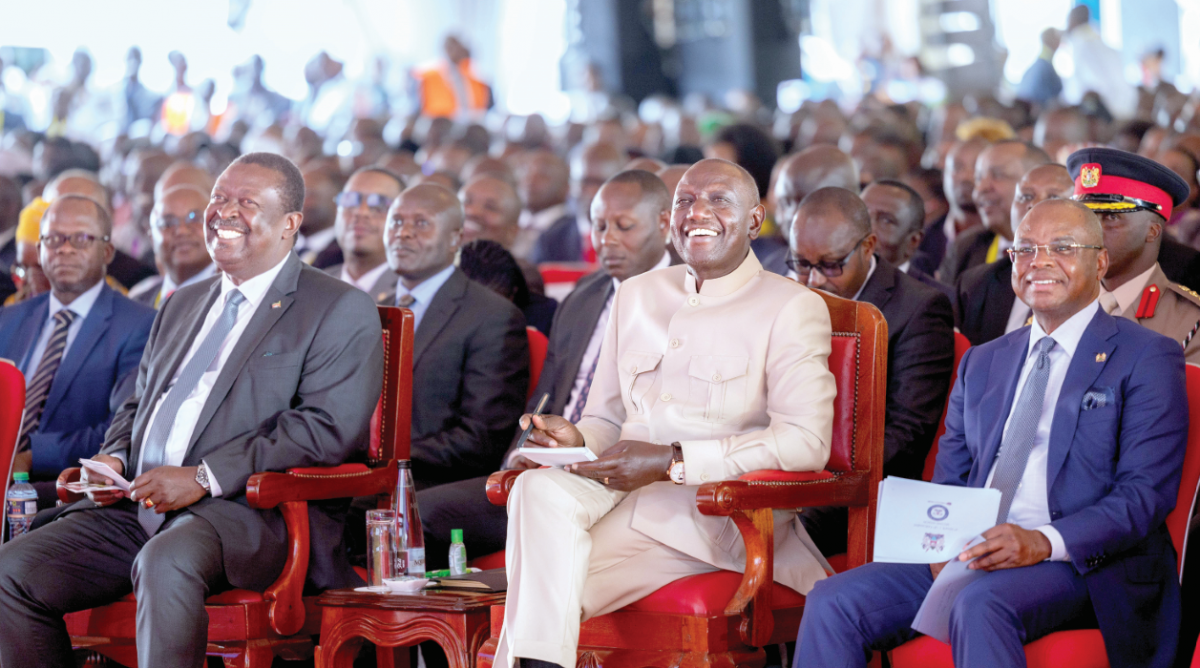Rural areas must remain focus of devolution
By Alberto.Leny, August 22, 2023The landmark 10th Devolution Conference ended last weekend with a raft of resolutions based on lessons learned from 10 years of development under the devolved system of governance.
While it may yet be too early to describe devolution as a resounding success in Kenya’s political, economic and social landscape, there is no doubt that considerable progress has been made.
Resolutions made at this conference indicate that some gaps exist in the two-tier system of government envisaged in devolution that needs to be filled to maximise its potential. Devolution is yet to succeed in its main development objective of transforming rural areas.
A key resolution recognises the main shortcoming hampering the full attainment of devolution’s constitutional requirement on the distribution of power and resources from the centre: Lack of harmony, efficiency and adequate coordination between the two levels of government and their synchronisation with vital partners in other national and international organisations.
Governors resolved that the national and county governments should better synergise their efforts with development partners and the private sector. This resolution aligns with devolution’s main goal of talking about development in rural areas. Adopting such a coordinated approach would help achieve development targets in a coordinated approach of partnerships and implementation of programs that avoids multiplicity of efforts.
While both levels of government ponder on how best to tackle this challenge and steer devolution as a driver of development, they must reflect on their main affliction – corruption and mismanagement.
The Constitution put in place measures to ensure transparency and accountability in the management of county affairs when devolution took effect for 10 years. The constitutional and legal framework spelt out the role of each level of government including the rules governing fiscal arrangement and public service delivery, and the mechanism for conflict resolution.
Devolution envisioned that the political framework governing the electoral process at the sub-national (county) levels facilitates the direct participation of the users of services in the elections of political leaders. The governors’ resolution that both levels of government review the legislative framework to enhance the autonomy of County Assemblies to strengthen their oversight role is welcome.
Locally elected officials are compelled to pay keen attention to the demands of the electorate at the local level. The outcomes of devolution are also influenced by the electoral system.
However, it has become apparent that some of those entrusted by the people to control resources devolved from the centre on their behalf for their benefit at the grassroots are not equal to the task.
Instead, they have found ways to manipulate the system and siphon these resources, diverting them to individual interests. It is clear that county governments have inherited the notorious attributes of their big brother.
Millions of shillings intended to uplift millions of citizens out of poverty, especially in urban slums and rural areas, have ended up in individual accounts and properties.
Devolution was meant to curb rural-urban migration, but it is still far from realising this objective because of the lopsided ratio of money allocated to paying a bloated workforce compared to meagre resources voted for development.
The national and county governments must enhance and sustain performance management as a tool for strengthening service delivery. Finally, ways must be explored to entrench the division of revenue between the national and county governments on the projected budget for the year, as opposed to using the last audited accounts.
—The writer comments on constitutional and national affairs—albertoleny@gmail.com
More Articles

